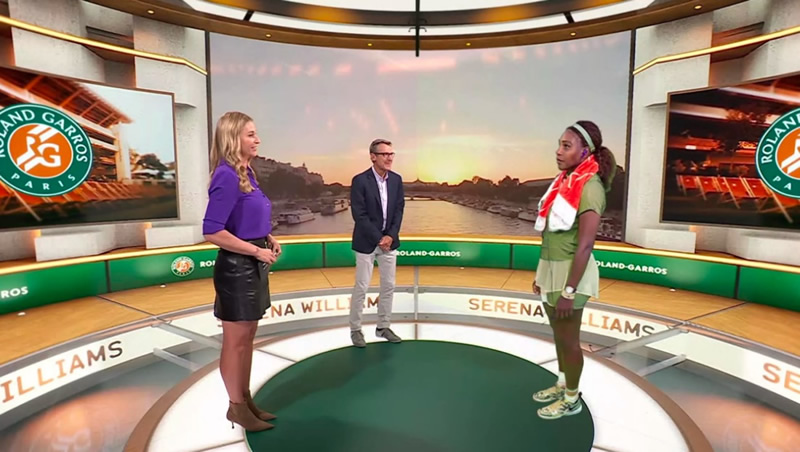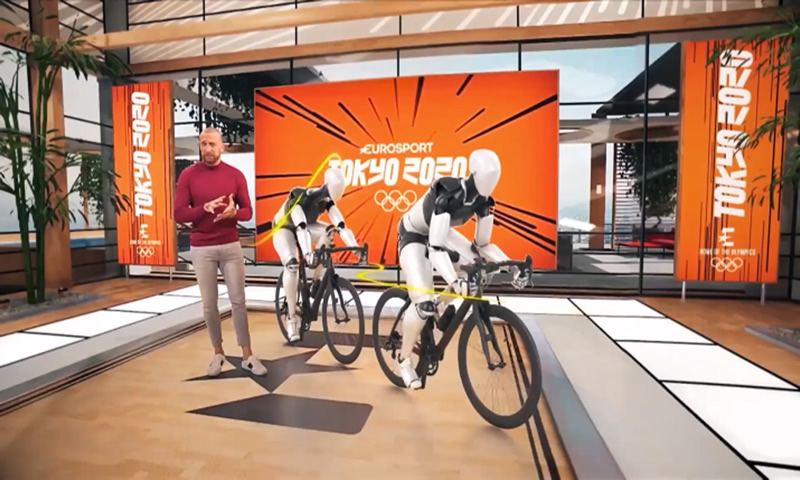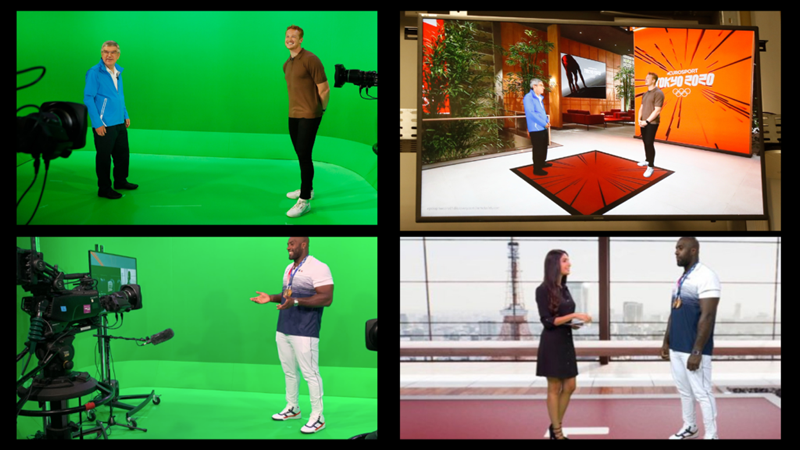Agenda AI is a strategic plan launched by the International Olympic Committee to enhance its relationship with athletes and fans through the evolution of generative artificial intelligence.

One of the innovations that the Olympic Games Paris 2024 will offer, sports organizations have already known since the second half of the last decade: the automated production of highlights that detect the “mood” in the stadiums to identify that situation as worthy of being highlighted. Wimbledon has been doing it with IBM since 2017. But the Olympics always offer another scale when it comes to sports productions.
Agenda AI is strategic plan launched by the International Olympic Committee to enhance its relationship with athletes and fans from the evolution of generative artificial intelligence. In this regard, the IOC will endow all the power of its technological partners to offer audiovisual content based on artificial intelligence. As is often the case, many innovations that are part of the television industry’s processes are not directly perceived by audiences, but they facilitate and improve broadcasters’ workflow.

“Broadcasters will be able to have automated highlights that can be generated by country, by sport, by day and also by the emotion generated by athletes in competitions,” said Yannis Exarchos, CEO of Olympic Broadcasting Services at the presentation made by the IOC at Lee Valley Velopark in London. The segment dedicated to the application of IP in media also featured Molly Solomon, executive president of NBC Olympics operations, and Andrew Georgiou, president of WB Discovery Sports Europe, representing two of the IOC’s most powerful media partners.
“NBC has a proposal to offer its content on NBC, the Peacock streaming platform and also in Spanish through Telemundo. There is a lot of content we can offer, so all these processes make it easier for us. NBC tells stories at the Olympic Games. From the competitions and from the athletes. We have to preserve that human side and make appropriate use of the A.I. to accompany that narrative,” said Solomon.

The Olympic Games last only 17 days, offering competitions in 32 sports and more than 300 disciplines. That flow of races, fights, jumps and pool ruts are distributed by 80 different television feeds and will accumulate more than 11 thousand hours of audiovisual content. The fragmentation of the competitions will occupy the heart of platforms and social networks that will amplify this huge amount of content. There will be no escape.
Each edition of the Olympic Games serves as a platform for technological breakthroughs. In Tokyo 2020 -which actually took place in 2021 because of the pandemic- Georgiou was one of the names behind The Cube, the augmented reality solution presented by Eurosport, which made it possible to produce remote interviews, on the classic green background of a mini-studio, which were then broadcast on a virtual stage set up especially for the time of day. The sports productions we see in South America have not yet consolidated this type of innovation that enriches the proposal of live content: an interview with an athlete on location, which is embodied in the central studios of a channel.

Tokyo also brought news on augmented reality and teleportation of content: NTT, a local communications sponsor, teleported a badminton competition from the Games to the Tokyo Museum of Emerging Science and Innovation with augmented reality holograms. The match was played in the stadium, but the holograms could be viewed inside the museum.
The official Tokyo 2020 app in partnership with Samsung offered a gamified augmented reality solution with skateboarding and other sports in a fan engagement strategy fully leveraged on technological innovation. Skateboarding had its baptism in the last Games and the first 48 hours of competition added 700 thousand unique users in the official platforms of the Games. Technology for the fans that raise the interest of the events.
A new technological and innovative leap in sports broadcasting is expected from Paris 2024. The IOC Agenda, which explores all the possibilities of artificial intelligence, relies on its global sponsors such as Intel and Alibaba to generate big data from the competitions, track every action and take these operations to the cloud to give speed and scope to the 11 thousand hours of sports content. For now, they promise automated highlights. We are convinced that this will not stop there.